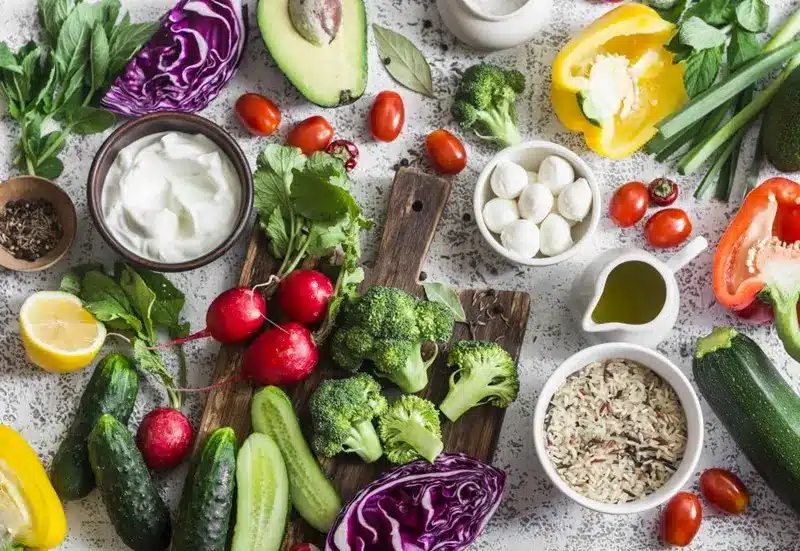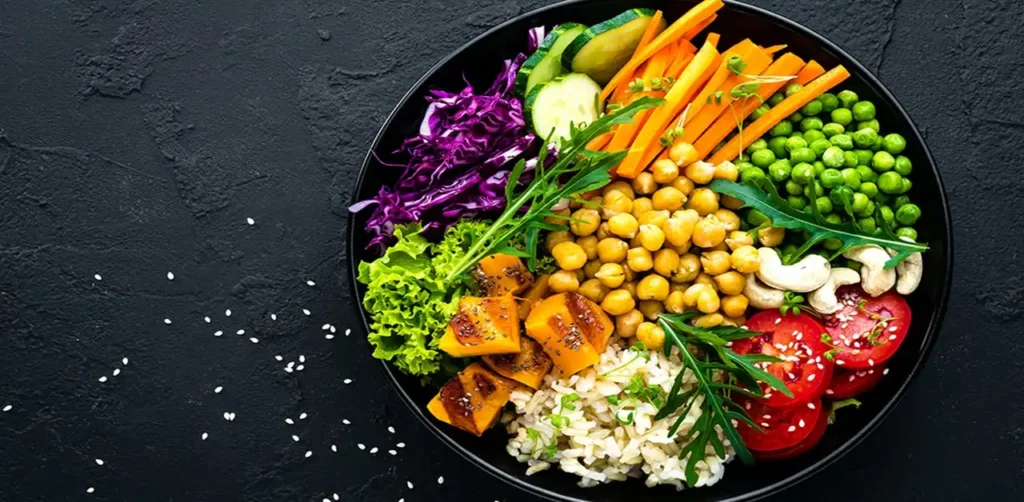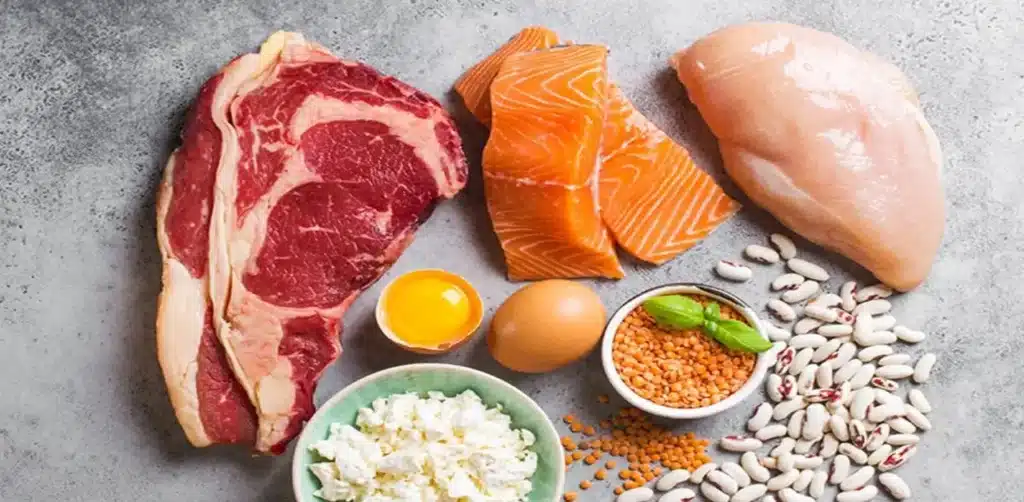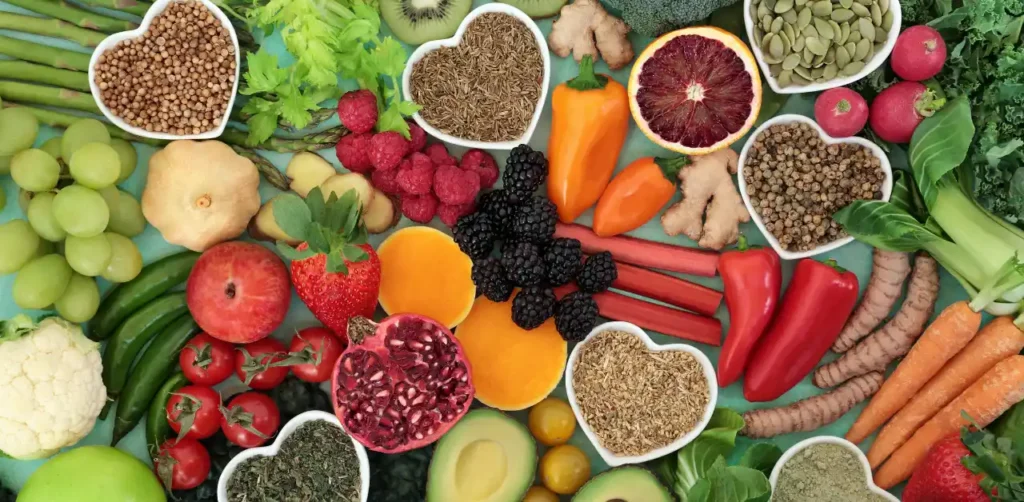Attention-deficit/hyperactivity disorder (ADHD) is a neurodevelopmental disorder that affects both children and adults. Symptoms include inattentiveness, hyperactivity, and impulsiveness, which can significantly impact daily life. While medication and behavioral therapies are common treatments, emerging research highlights the importance of diet in managing ADHD symptoms. This blog explores ADHD-friendly meals, diet recommendations, and the best foods to support those with ADHD.
The Connection Between Diet and ADHD
Research suggests that nutrition can influence ADHD symptoms. Certain foods and nutrients may exacerbate or alleviate symptoms, making dietary management a crucial aspect of treatment. A balanced diet that includes ADHD-friendly meals and snacks can support overall brain health, improve concentration, and reduce hyperactivity and impulsiveness.

ADHD Diet Recommendations
- High-Protein Foods: Proteins are essential for producing neurotransmitters, which regulate attention and mood. Include lean meats, eggs, beans, and nuts in the diet.
- Complex Carbohydrates: Whole grains, vegetables, and fruits provide steady energy and help maintain blood sugar levels, preventing mood swings and irritability.
- Omega-3 Fatty Acids: Found in fish, flaxseed, and walnuts, omega-3s are crucial for brain function and may reduce ADHD symptoms.
- Iron and Zinc: These minerals are vital for brain development and function. Include lean red meat, poultry, seafood, and legumes in meals.
Foods for ADHD: What to Include and Avoid

Best Foods for ADHD
- Fish: Salmon, mackerel, and sardines are rich in omega-3 fatty acids.
- Lean Meats: Chicken, turkey, and lean beef provide essential proteins.
- Whole Grains: Brown rice, oats, and whole wheat bread offer sustained energy.
- Fruits and Vegetables: Berries, oranges, spinach, and broccoli are packed with vitamins and minerals.
- Nuts and Seeds: Almonds, walnuts, chia seeds, and flaxseeds are excellent sources of healthy fats and proteins.
Foods to Avoid
- Sugary Foods: Candy, soda, and pastries can cause blood sugar spikes, leading to hyperactivity.
- Processed Foods: High in additives and preservatives, processed foods can worsen ADHD symptoms.
- Caffeine: While small amounts may help some individuals, excessive caffeine can increase anxiety and restlessness.
- Artificial Additives: Certain artificial colors and flavors are linked to increased hyperactivity.
ADHD Nutrition Plan: Structuring Meals for Success
Creating a nutrition plan tailored to ADHD can help manage symptoms effectively. Here are some ADHD meal ideas and tips:
Breakfast
Start the day with a balanced breakfast that includes protein, complex carbohydrates, and healthy fats. Examples include:
- Oatmeal with Nuts and Berries: A hearty bowl of oatmeal topped with almonds and blueberries.
- Egg and Veggie Scramble: Eggs scrambled with spinach, tomatoes, and mushrooms.
- Smoothie Bowl: A blend of yogurt, banana, flaxseeds, and spinach.
Lunch
Midday meals should be satisfying and nutrient-dense to sustain energy levels. Consider:
- Grilled Chicken Salad: Mixed greens with grilled chicken, quinoa, and avocado.
- Turkey and Veggie Wrap: Whole wheat wrap filled with turkey, hummus, and a variety of vegetables.
- Lentil Soup: A warming bowl of lentil soup with carrots, celery, and spinach.
Dinner
Dinner should be balanced and easy to digest. Some options include:
- Baked Salmon with Quinoa: Salmon fillet baked with a side of quinoa and steamed broccoli.
- Stir-Fried Tofu and Vegetables: Tofu stir-fried with bell peppers, carrots, and snap peas.
- Beef and Sweet Potato Stew: A hearty stew with lean beef, sweet potatoes, and kale.
ADHD-Friendly Snacks
Healthy snacks can keep energy levels stable and reduce impulsivity between meals. Try these ADHD-friendly snacks:
- Apple Slices with Peanut Butter: A sweet and satisfying combination.
- Greek Yogurt with Honey and Nuts: Rich in protein and healthy fats.
- Carrot Sticks and Hummus: Crunchy and nutritious.
- Trail Mix: A mix of nuts, seeds, and dried fruits.
- Cheese and Whole Grain Crackers: Simple and filling.

ADHD-Friendly Recipes
Here are a few simple recipes to incorporate into your ADHD nutrition plan:
Omega-3 Packed Salmon Salad
Ingredients:
- 2 cups mixed greens
- 1 grilled salmon fillet
- 1 avocado, sliced
- 1/2 cup cherry tomatoes, halved
- 1/4 cup walnuts
- Dressing: Olive oil and lemon juice
Instructions:
- Combine the mixed greens, avocado, cherry tomatoes, and walnuts in a bowl.
- Top with grilled salmon.
- Drizzle with olive oil and lemon juice.
Protein-Packed Quinoa Breakfast Bowl
Ingredients:
- 1 cup cooked quinoa
- 1/2 cup Greek yogurt
- 1 banana, sliced
- 1/4 cup blueberries
- 1 tbsp honey
- 1 tbsp chia seeds
Instructions:
- Place cooked quinoa in a bowl.
- Top with Greek yogurt, banana slices, and blueberries.
- Drizzle with honey and sprinkle with chia seeds.
Implementing ADHD Nutrition Therapy
ADHD nutrition therapy involves a holistic approach to dietary management, focusing on nutrient-rich foods and balanced meals. Working with a nutritionist can help tailor a plan specific to individual needs and preferences. Regular monitoring and adjustments ensure the diet remains effective in managing ADHD symptoms.
Ordering Healthy Food with IntRest
For those managing ADHD, meal planning and preparation can be challenging. IntRest simplifies this process by offering a wide selection of healthy food meals tailored to specific dietary needs, including ADHD. Users can easily filter menus based on their illness, diet, and allergies, ensuring they receive nutritious, ADHD-friendly meals.
By following ADHD diet recommendations and incorporating ADHD-friendly meals and snacks, individuals can support their overall health and well-being. IntRest provides a convenient solution for accessing healthy food near you, making it easier to stick to a nutritious diet and manage ADHD symptoms effectively.
This blog post has covered comprehensive insights into how diet influences ADHD symptoms, offering practical tips and meal ideas. Incorporating the right foods can significantly improve focus and reduce hyperactivity, providing a natural complement to traditional treatments. Remember, you can always rely on IntRest to provide healthy food that caters to your specific needs.



